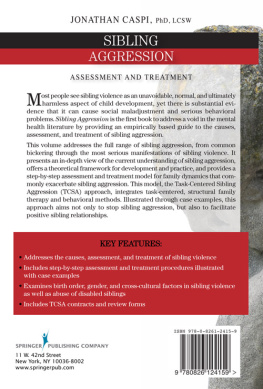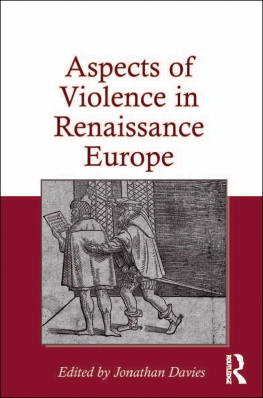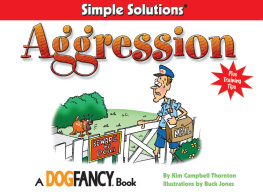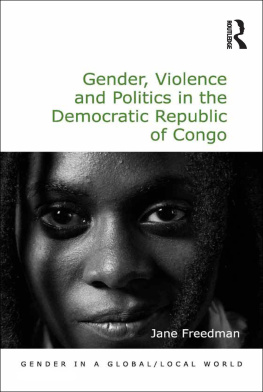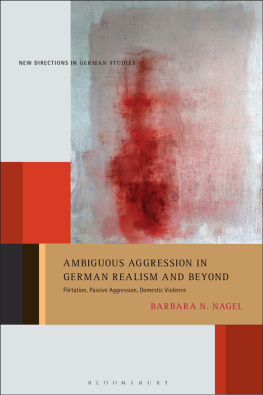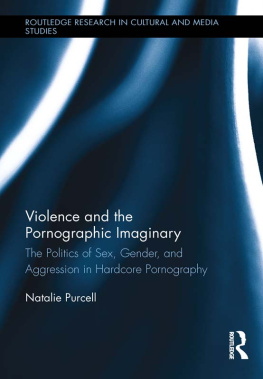Jonathan L. Freedman - Media violence and its effect on aggression : assessing the scientific evidence
Here you can read online Jonathan L. Freedman - Media violence and its effect on aggression : assessing the scientific evidence full text of the book (entire story) in english for free. Download pdf and epub, get meaning, cover and reviews about this ebook. City: Toronto, year: 2013, publisher: University of Toronto Press, genre: Politics. Description of the work, (preface) as well as reviews are available. Best literature library LitArk.com created for fans of good reading and offers a wide selection of genres:
Romance novel
Science fiction
Adventure
Detective
Science
History
Home and family
Prose
Art
Politics
Computer
Non-fiction
Religion
Business
Children
Humor
Choose a favorite category and find really read worthwhile books. Enjoy immersion in the world of imagination, feel the emotions of the characters or learn something new for yourself, make an fascinating discovery.

- Book:Media violence and its effect on aggression : assessing the scientific evidence
- Author:
- Publisher:University of Toronto Press
- Genre:
- Year:2013
- City:Toronto
- Rating:4 / 5
- Favourites:Add to favourites
- Your mark:
- 80
- 1
- 2
- 3
- 4
- 5
Media violence and its effect on aggression : assessing the scientific evidence: summary, description and annotation
We offer to read an annotation, description, summary or preface (depends on what the author of the book "Media violence and its effect on aggression : assessing the scientific evidence" wrote himself). If you haven't found the necessary information about the book — write in the comments, we will try to find it.
Media violence and its effect on aggression : assessing the scientific evidence — read online for free the complete book (whole text) full work
Below is the text of the book, divided by pages. System saving the place of the last page read, allows you to conveniently read the book "Media violence and its effect on aggression : assessing the scientific evidence" online for free, without having to search again every time where you left off. Put a bookmark, and you can go to the page where you finished reading at any time.
Font size:
Interval:
Bookmark:
MEDIA VIOLENCE AND ITS EFFECT ON AGGRESSION: ASSESSING THE SCIENTIFIC EVIDENCE
In this controversial work, Jonathan Freedman argues that the scientific evidence does not support the notion that exposure to TV and film violence causes aggression in children or adults. Based on his findings, far fewer than half of the scientific studies have found a causal connection between exposure to media violence and aggression or crime. In fact, Freedman believes that, taken to an extreme, the research could be interpreted as showing that there is no causal effect of media violence at all.
Media Violence and Its Effect on Aggression offers a provocative challenge to popular wisdom and various public statements by professional and scientific organizations. Freedman begins with a comprehensive review of all the research on the effect of violent movies and television on aggression and crime. Having shown the lack of scientific support for the prevailing belief that media violence is connected to violent behaviour, he then explains why something that seems so intuitive and even obvious might be incorrect, and provides plausible reasons why media violence might not have bad effects on children. He contrasts the supposed effects of TV violence on crime with the known effects of poverty and other social factors.
Freedman concludes by noting that although in recent years television and films have been as violent as ever and violent video games have become more and more popular, there has been a dramatic decrease in violent crime. He argues that it is thus unlikely that media violence causes an increase in aggression or crime and that both increases and decreases in violent crime are the result of major social forces.
JONATHAN L. FREEDMAN is Professor of Psychology at the University of Toronto.
JONATHAN L. FREEDMAN

University of Toronto Press 2002
Toronto Buffalo London
Printed in the U.S.A
Reprinted 2003, 2006, 2013
ISBN 0-8020-3553-1 (cloth)
ISBN 0-8020-8425-7 (paper)

Printed on acid-free paper
National Library of Canada Cataloguing in Publication Data
Freedman, Jonathan L.
Media violence and its effect on aggression : assessing the scientific evidence
Includes bibliographical references and index.
ISBN 0-8020-3553-1 (bound). ISBN 0-8020-8425-7 (pbk.)
1. Violence in mass media Psychological aspects.
2. Aggressiveness in children. I. Title.
P96.V5F73 2002 155.4018232 C2001-903806-2
This book has been published with the help of a grant from the Humanities and Social Sciences Federation of Canada, using funds provided by the Social Sciences and Humanities Research Council of Canada.
The University of Toronto Press acknowledges the financial assistance to its publishing program of the Canada Council for the Arts and the Ontario Arts Council.
University of Toronto Press acknowledges the financial support for its publishing activities of the Government of Canada through the Book Publishing Industry Development Program (BPIDP).
To Rona and Jacob
Many people are convinced that media violence is harmful. They believe that exposure to this kind of violence causes children and perhaps also adults to become more aggressive and even to commit violent crimes. This belief has been fostered and supported by some psychologists and representatives of health organizations, who have claimed that the scientific research has proven that media violence has this effect. As I shall attempt to show in this book, this is not correct. There is a considerable amount of research on the topic, and contrary to these claims, the results of the research generally do not demonstrate that exposure to media violence causes aggression.
For many years I followed the debate about media violence at a distance, without conducting any research or writing any articles on the topic. I got involved largely by accident. When I first came to the University of Toronto, some graduate students wanted me to teach a seminar. I wanted a topic that would involve many different kinds of research and that would also be inherently interesting. I chose television violence because it met these criteria, and also because I knew relatively little about the research and could thus start at about the same point as the students. I had read some of the research and was somewhat sceptical of the claims that had been made about it, but I had no fixed ideas about the subject.
The class was attended by five graduate students, and between three and five faculty members sat in on each session. We read quite a lot of the research during the term. Each week, we read several papers, analysed them, and discussed the results. As the term progressed, we were all surprised to find that the research often did not show what it had been described as showing. Many studies that were typically cited as showing that exposure to television violence increased aggression what I call the causal hypothesis did not show this effect, and sometimes they even showed the opposite effect. By the time the course ended I had decided that it was important to set the record straight. I spent a year or so reading the research, and wrote a review of the non-laboratory studies that concluded that the research did not support the causal hypothesis. The paper was published in the Psychological Bulletin, which is the main journal of the American Psychological Association for this kind of review.
Since that paper was published, I have been asked to give talks, appear at conferences, and contribute papers on the topic. I have continued to read the research and to be involved in the debate. Throughout these years I have argued that contrary to what is often claimed, the bulk of the research does not show that television or movie violence has any negative effects.
In 1999 I was approached by the Motion Picture Association of America and asked whether I would consider conducting a comprehensive review of all the research on media violence. Until then I had never received any support from any organization for this work. On the one hand, I was a little nervous because I knew there was a danger that my work would be tainted by a connection with the MPAA. On the other hand, I thought it was time for a complete review of the research, and I knew I could not do it without support. After some soul searching and consultation with a lawyer, I agreed as long as it was made absolutely clear that I was free to do and say what I wanted in the review. The MPAA would have no input into the review, would see it only after it was complete, and except for editorial suggestions, would be forbidden to alter what I wrote. Of course they asked me to do the review, rather than someone else, because they knew my position and assumed or at least hoped that I would come to the same conclusion after a more comprehensive review. But there was no quid pro quo. Although I was nervous about being tainted, I am confident that I was not. In any case, the conclusions of this review are not different from those of my earlier review or those I expressed in papers and talks between 1984 and 1999.
In 1999 I began systematically reading and reviewing every single scientific study I could find that dealt with the question whether exposure to film and television violence causes aggression. Having looked at all this research, I concluded that the results do not support the view that exposure to media violence causes children or anyone else to become aggressive or to commit crimes; nor does it support the idea that it causes people to be less sensitive to real violence. In this book I report on this comprehensive review. My purpose is to describe the evidence, indicate what it shows, and provide plausible reasons why media violence does not have bad effects on children.
Next pageFont size:
Interval:
Bookmark:
Similar books «Media violence and its effect on aggression : assessing the scientific evidence»
Look at similar books to Media violence and its effect on aggression : assessing the scientific evidence. We have selected literature similar in name and meaning in the hope of providing readers with more options to find new, interesting, not yet read works.
Discussion, reviews of the book Media violence and its effect on aggression : assessing the scientific evidence and just readers' own opinions. Leave your comments, write what you think about the work, its meaning or the main characters. Specify what exactly you liked and what you didn't like, and why you think so.

